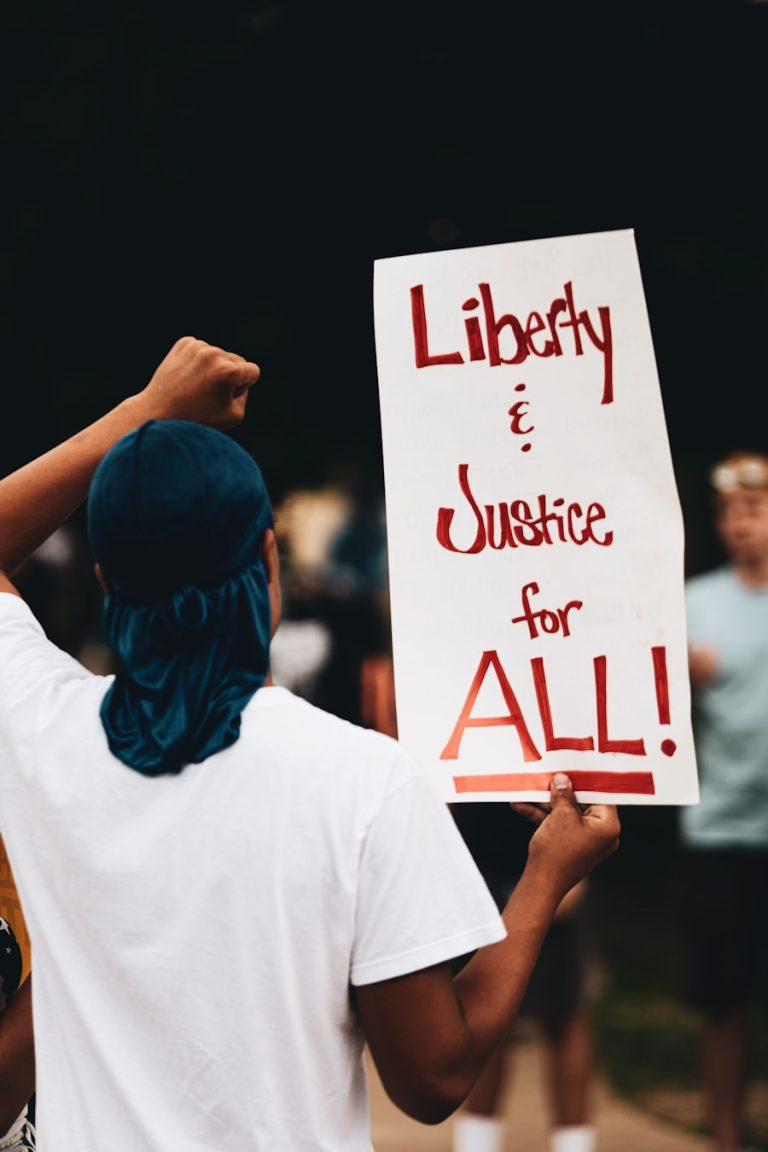
The Constitution of the United States, ratified in 1788, stands as a monumental document that outlines the framework of the federal government and delineates the rights of the states and the individual. Crafted during a time of significant political upheaval and philosophical debate, it reflects the Enlightenment ideals of liberty, democracy, and justice. The framers, influenced by thinkers such as John Locke and Montesquieu, sought to create a system that would prevent tyranny while promoting the common good.
The Constitution is not merely a legal document; it is a living testament to the aspirations of a nation striving for freedom and equality. At its core, the Constitution establishes a system of checks and balances among the three branches of government: the legislative, executive, and judicial. This separation of powers is designed to ensure that no single entity can dominate the political landscape, thereby safeguarding individual liberties.
The Bill of Rights, comprising the first ten amendments, further emphasizes the importance of personal freedoms by explicitly enumerating rights such as freedom of speech, religion, and assembly. As society evolves, interpretations of the Constitution continue to adapt, reflecting changing values and norms while remaining anchored in its foundational principles.
Key Takeaways
- The Constitution is the foundational legal document of the United States, outlining the structure of the government and the rights of its citizens.
- Libertarians view the Constitution as a safeguard for individual liberties and a limit on government power.
- Individual rights, such as freedom of speech and the right to bear arms, are protected by the Constitution.
- The Constitution establishes a system of limited government, with checks and balances to prevent any one branch from becoming too powerful.
- The judiciary plays a crucial role in interpreting the Constitution and ensuring that laws and government actions are in line with its principles.
The Libertarian View of the Constitution
Libertarians hold a distinctive perspective on the Constitution, viewing it as a crucial safeguard against government overreach and an essential framework for protecting individual liberties. From this viewpoint, the Constitution is not merely a set of rules for governance but a declaration of the primacy of individual rights. Libertarians argue that the framers intended for the Constitution to limit government power and ensure that citizens retain maximum autonomy over their lives.
This interpretation emphasizes that any powers not explicitly granted to the federal government should be reserved for the states or the people, as articulated in the Tenth Amendment. Moreover, libertarians often critique various interpretations of the Constitution that have emerged over time, particularly those that expand governmental authority at the expense of personal freedoms. They argue that many modern policies contradict the original intent of the framers, who sought to create a government that would be restrained and accountable.
For instance, libertarians frequently point to issues such as surveillance, taxation, and regulatory overreach as examples of how contemporary governance has strayed from constitutional principles. They advocate for a strict constructionist approach to constitutional interpretation, arguing that any ambiguity should be resolved in favor of individual rights and limited government.
Individual Rights and the Constitution

The Constitution’s emphasis on individual rights is perhaps most clearly articulated in the Bill of Rights. These first ten amendments serve as a bulwark against potential governmental encroachments on personal freedoms. The First Amendment guarantees fundamental rights such as freedom of speech, press, religion, assembly, and petitioning the government.
Limited Government and the Constitution
| Aspect | Metric |
|---|---|
| Constitutional Limits | Number of amendments |
| Government Powers | Number of branches |
| Individual Rights | Number of Bill of Rights |
| Checks and Balances | Number of veto overrides |
The principle of limited government is central to both the Constitution and libertarian philosophy. The framers designed a system where governmental powers are enumerated and restricted to prevent tyranny and protect individual freedoms. This concept is enshrined in various constitutional provisions, including those that delineate federal powers in Article I and reserve other powers for states or individuals in the Tenth Amendment.
Libertarians argue that this framework is essential for maintaining a free society where citizens can pursue their own interests without undue interference from authorities. Libertarians often express concern over the expansion of government powers through legislation and judicial interpretation. They argue that many contemporary policies—such as extensive regulatory frameworks or expansive welfare programs—contradict the original intent of limited government.
For example, they contend that agencies like the Environmental Protection Agency (EPA) or the Federal Communications Commission (FCC) often overstep their bounds by imposing regulations that infringe upon individual liberties and economic freedoms. By advocating for a return to constitutional principles that prioritize limited government intervention, libertarians seek to restore a balance between state authority and personal autonomy.
The Role of the Judiciary in the Constitution
The judiciary plays a pivotal role in interpreting the Constitution and ensuring that laws align with its principles. Courts are tasked with adjudicating disputes involving constitutional rights and determining whether governmental actions comply with constitutional mandates. Libertarians emphasize that an independent judiciary is essential for upholding individual rights against potential abuses by other branches of government.
They argue that judges should adhere strictly to constitutional text and original intent when making decisions, thereby preventing judicial activism that could undermine personal freedoms.
Landmark Supreme Court cases such as Wickard Filburn (1942), which expanded federal regulatory power under the Commerce Clause, are often cited as examples where judicial decisions have eroded individual liberties.
Libertarians advocate for a judiciary that respects constitutional limits on government power while protecting individual rights from encroachment. This perspective underscores their belief in a legal system that prioritizes personal autonomy and accountability over expansive governmental authority.
The Constitution and Economic Freedom

Economic freedom is another critical aspect of libertarian thought as it relates to the Constitution. Libertarians argue that a free-market economy is essential for fostering innovation, prosperity, and individual empowerment. They contend that government intervention in economic affairs—through regulations, taxes, or subsidies—often stifles competition and limits opportunities for individuals to pursue their entrepreneurial ambitions.
The Constitution’s framework is seen as conducive to economic freedom by establishing property rights and limiting governmental interference in commerce. The protection of property rights is enshrined in both the Fifth Amendment, which prohibits taking private property without just compensation, and in various state constitutions. Libertarians assert that these protections are vital for encouraging investment and economic growth.
They argue that when individuals feel secure in their property rights, they are more likely to engage in productive activities that benefit society as a whole. Conversely, when governments impose excessive regulations or confiscatory tax policies, they undermine economic incentives and hinder overall prosperity.
The Constitution and Personal Liberty
Personal liberty encompasses a broad range of freedoms beyond mere economic considerations; it includes issues related to privacy, bodily autonomy, and lifestyle choices. Libertarians advocate for minimal governmental interference in these areas, arguing that individuals should have the right to make decisions about their own lives without coercion from authorities. This perspective aligns with constitutional protections against unreasonable searches and seizures found in the Fourth Amendment and broader notions of personal autonomy.
Contemporary debates surrounding issues such as reproductive rights, drug policy reform, and surveillance practices illustrate how personal liberty intersects with constitutional principles. For instance, libertarians often support efforts to decriminalize marijuana use or advocate for reproductive rights based on their belief in individual autonomy over one’s body. They argue that such matters should be left to individuals rather than dictated by government mandates or moralistic legislation.
This emphasis on personal liberty reflects a commitment to respecting diverse lifestyles and choices within a pluralistic society.
The Future of the Constitution from a Libertarian Perspective
Looking ahead, libertarians express both optimism and concern regarding the future trajectory of the Constitution. On one hand, they believe there is growing public awareness about issues related to government overreach and individual rights violations. Movements advocating for criminal justice reform, privacy protections, and reduced taxation resonate with libertarian principles and suggest an increasing appetite for limited government solutions among citizens.
However, challenges remain as political polarization intensifies and debates over governmental authority continue to evolve. Libertarians worry about potential encroachments on civil liberties under the guise of national security or public health initiatives. They advocate for vigilance in protecting constitutional rights against encroachments from both major political parties while promoting education about constitutional principles among citizens.
In conclusion, libertarians envision a future where the Constitution serves as a robust protector of individual rights and limited government authority. They seek to foster an environment where personal freedoms are respected across all aspects of life while ensuring that governmental powers remain constrained by constitutional limits. Through advocacy efforts and public discourse, libertarians aim to reinvigorate appreciation for constitutional principles as essential components of a free society.
The Constitution: The Libertarian Stance explores the principles of libertarianism and how they align with the American Constitution. For further reading on American libertarian values, one may be interested in the article American Libertarian Values and the American Constitution, which delves deeper into the relationship between libertarianism and the founding principles of the United States. This article provides valuable insights into how libertarian values have influenced the development of the American Constitution and the country as a whole.
FAQs
What is the libertarian stance on the Constitution?
The libertarian stance on the Constitution is that it should be interpreted in a way that maximizes individual liberty and limits the power of the government. Libertarians believe in strict adherence to the original intent of the Constitution and advocate for limited government intervention in the lives of citizens.
How do libertarians view the Bill of Rights?
Libertarians view the Bill of Rights as essential protections for individual freedoms and rights. They believe that the Bill of Rights serves as a check on government power and ensures that individuals are protected from government overreach.
What is the libertarian perspective on the role of government in the Constitution?
From a libertarian perspective, the role of government as outlined in the Constitution should be limited to protecting individual rights and maintaining a free market economy. Libertarians advocate for a government that is small, decentralized, and focused on protecting individual liberties.
Do libertarians support the idea of a limited government as outlined in the Constitution?
Yes, libertarians support the idea of a limited government as outlined in the Constitution. They believe that the powers of the federal government should be strictly enumerated and that any powers not specifically granted to the federal government should be reserved for the states or the people.
How do libertarians view the Constitution’s system of checks and balances?
Libertarians view the Constitution’s system of checks and balances as a crucial mechanism for preventing the concentration of power in the hands of the government. They believe that the separation of powers and the system of checks and balances are essential for protecting individual liberties and preventing government overreach.



